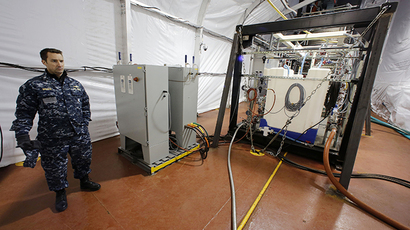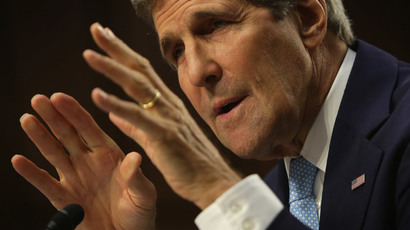Turkey, Saudi Arabia giving terrorists WMDs, Syria claims
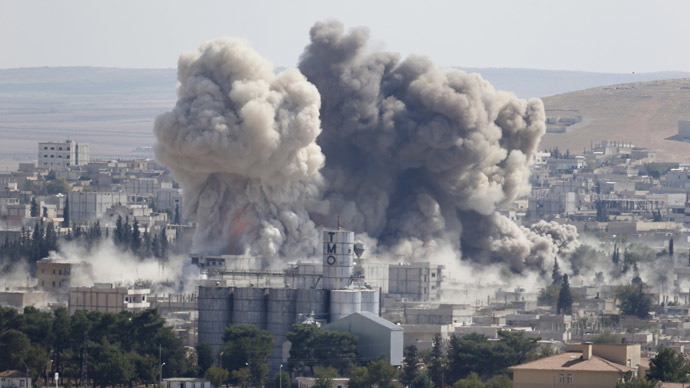
Syria’s UN envoy has accused Turkey and Saudi Arabia of giving weapons of mass destruction (WMDs) to terrorist groups fighting in the country. The charge precedes reports Kurdish fighters battling ISIS militants have been attacked with chemical weapons.
Bashar Jaafari told a UN committee on Friday that Turkey and Saudi Arabia should examine their own involvement in the Syrian conflict before leveling “null and baseless accusations [against] the Syrian government."
In comments delivered to the UN’s First Committee on Disarmament and International Security at the UN General Assembly, Jaafari accused Ankara and Riyadh of being “directly involved in providing these terrorist organizations with chemical weapons,” RIA-Novosti cites a source as saying.
He further accused the countries of helping finance groups attempting to overthrow Syrian President Bashar Assad. He singled out Turkey in particular for allegedly supporting over 100 militant organizations currently active in Syria.
Rather than lend “a helping hand” to help Damascus put a halt to the crisis currently engulfing the country, the Turkish government has become “one of the main support bases for these terrorist organizations,” the Israeli- daily Haaretz cites Jaafari as saying.
The report comes nearly a week after US Vice President Joe Biden was forced to apologize to Turkish President Recep Tayyip Erdogan after alleging he had allowed foreign fighters allied with the so-called Islamic State (IS) to cross into Syria.
A livid Erdogan said if Biden in fact had made the comments, the US vice president would be “history to me.”
During the phone call with Erdogan, Biden “apologized for any implication that Turkey or other allies and partners in the region had intentionally supplied or facilitated the growth of ISIL (IS, ISIS) or other violent extremists in Syria," the White House said.
On October 2, Biden blamed America’s allies in the region – Turkey, Saudi Arabia, and the United Arab Emirates – for allowing the rise of IS, saying they supported extremists with money and weapons in their eagerness to oust the Assad regime in Syria.
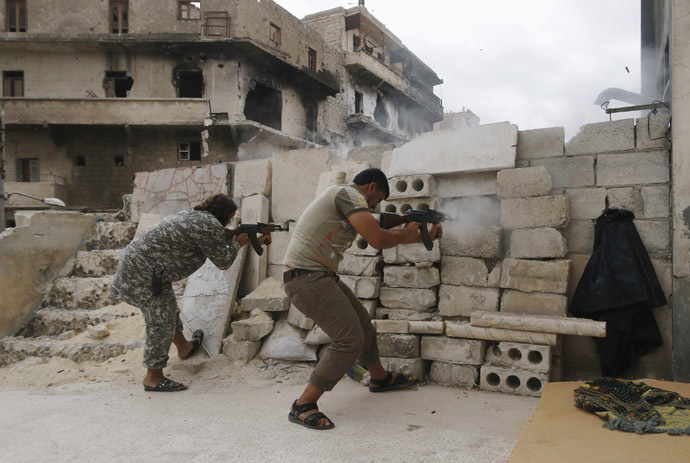
Hallmarks of a WMD attack
Meanwhile, photographs obtained by the Middle East Review of International Affairs (MERIA Journal) which were published on Sunday appear to support accusations IS militants have deployed chemical weapons against Kurdish fighters, who have been under siege in the northeastern Syrian city of Kobani since September 16.
According to the documentary evidence, which cannot be independently verified, three slain Kurdish fighters were inflicted with “burns and white spots” while not bearing any visible wounds or external bleeding.
The reported injuries could indicate that a chemical agent, potentially mustard gas, was deployed, MERIA said. The experts said, however, that more evidence would be needed to conclude the Kurdish fighters had died due to a chemical attack.
Hamish de Bretton-Gordon, one of the world's leading chemical weapons experts, told RT that if the MERIA photos are genuine, the injuries depicted would be “consistent with a blister agent, like Mustard [gas].”
“We know that Islamic State have already used chlorine in Iraq against the Iraqi army,” he added.
The journal suggests IS may have obtained the weapons following the seizure of the alleged Muthanna chemical weapons compound.
The journal cites a 2007 CIA report, which stated Muthanna was used to produce chemical agents, including mustard gas.
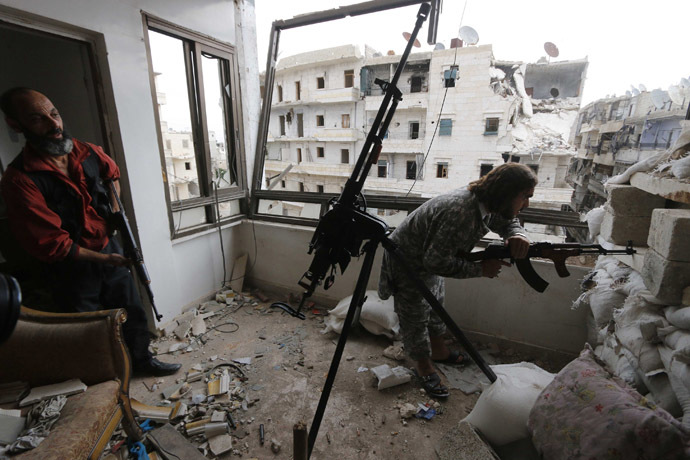
The report follows accusations from Washington last month that the Assad government had broken the chemical weapons treaty it signed earlier this year by deploying chlorine gas in several Syrian villages in Hama.
“We believe there is evidence of [President Bashar] Assad’s use of chlorine, which when you use it – despite it not being on the list – it is prohibited under the Chemical Weapons Convention,” Kerry told the US House of Representatives. “He’s in violation of the convention.”
Kerry added that Washington is studying ways to hold Assad to account.
Last week, British Foreign Secretary Philip Hammond said findings from the Organization for the Prohibition of Chemical Weapons (OPCW) “corroborate allegations that the Assad regime is continuing to use chemical weapons in Syria, in violation of the Chemical Weapons Convention” the UK Independent cited him as saying.
Responding to the accusations, Jaafari told the UN Damascus “condemns in the strongest terms the use of chemical weapons and weapons of mass destruction, and considers it an abhorrent crime and an impermissible, reprehensible and unethical act,” RIA cites him as saying.
He added that “a small number of governments had used this report to slander Syria.”
Jaafari further warned against politicizing the OPCW’s September report, saying that it had not assigned blame for the attacks.













